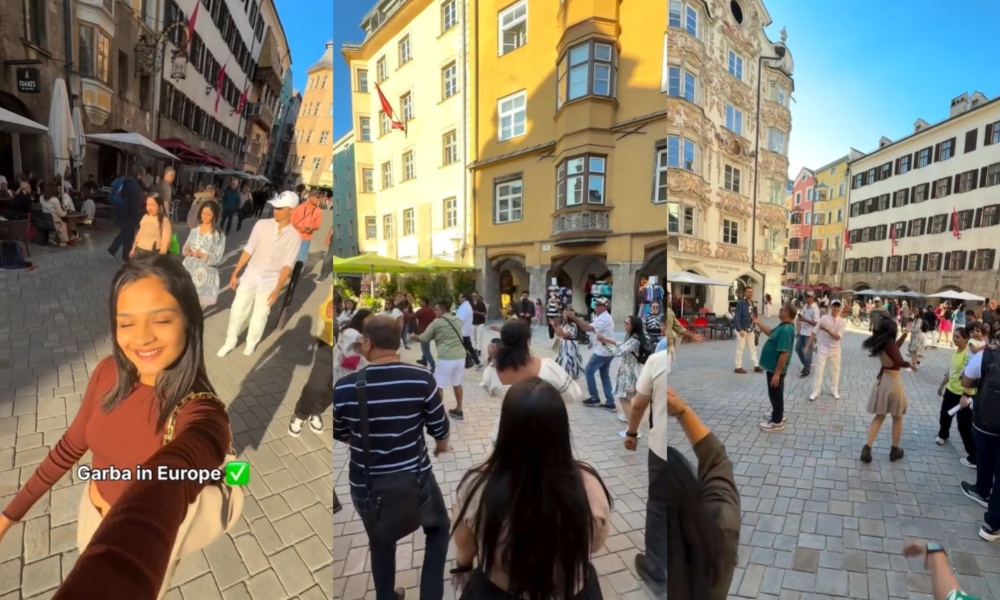A group of Indian tourists has sparked controversy online after a video showed them urging street performers in Austria to play Indian music so they could perform Garba, a traditional dance from Gujarat.

The video, shared on Instagram by Pearl Shah, features her saying she had always wanted to dance Garba in Europe and could now check it off her bucket list.
She described how her group of “43 Gujrati-Marwari” tourists came across two street singers and requested they play Indian music for the group to dance.
In the video, Shah mentions that the performers were hesitant and warned that they could receive police warnings if they played the requested music. Despite the reluctance, the group persisted. “We weren’t ready to leave without doing Garba,” she said. The video then shows the group dancing energetically on the street.
The clip quickly gained traction online, with many users criticizing the group for pressuring the musicians despite their clear discomfort. Social media reactions have been overwhelmingly negative, with several people, including members of the Gujarati community, expressing embarrassment and disappointment over the incident.
Following the backlash, Shah has removed the comments and even restricted anyone from commenting on the video. However, media reports were quick to note down some before Shah’s preventive action.
“I am a Gujju and love garba, but I’m sorry. I just don’t get the obsession with doing it on foreign streets and being proud of something. I mean, we don’t even do that in India on a random day and random street!” one person posted, as quoted by Hindustan Times.
Another echoed the sentiment, saying, “I’m a Gujju, and you guys really need to stop this nonsense of playing garba anywhere, anytime.”
Others shared that foreigners often view Indians as demanding, and incidents like this reinforce that stereotype. They said the performers were clearly uncomfortable, and forcing them to play Indian music was nothing to be proud of, which is why Indians sometimes don’t get respect abroad.
The backlash reflects broader concerns about tourist behavior and cultural sensitivity.


